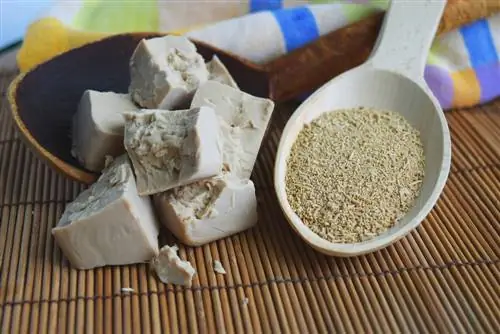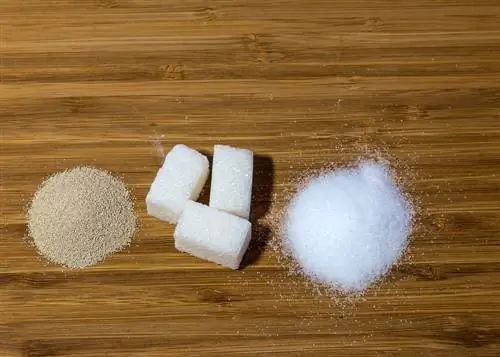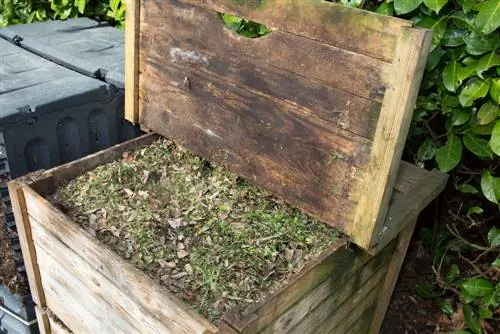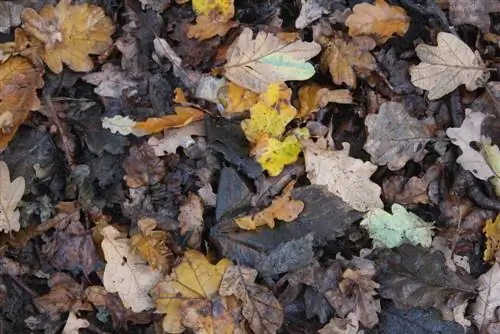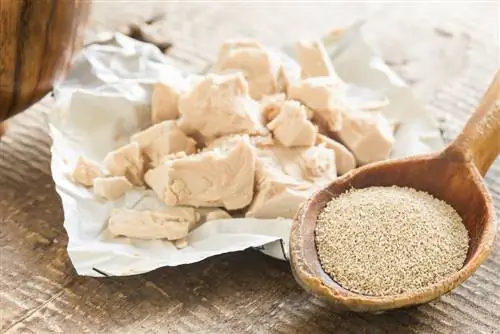- Author admin leonars@hobbygardeners.com.
- Public 2023-12-16 16:46.
- Last modified 2025-01-23 11:21.
Yeasts are known from alcohol production, but in well-aerated compost the yeast fungi have positive effects on the decomposition processes. You can activate your compost with a homemade solution. Alternatively, a mixture of different herbs is suitable.
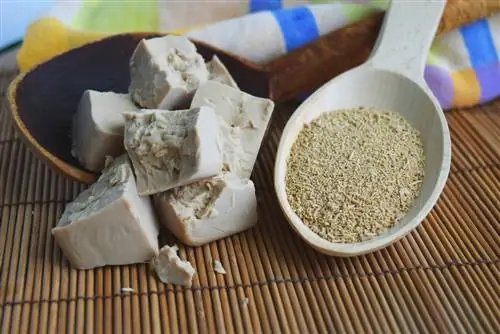
How to activate compost with yeast?
To activate the compost with yeast, mix 500 to 1,000 grams of sugar and a fresh yeast cube in a watering can with lukewarm water. Pour the solution onto the compost when the outside temperature is at least 20 degrees Celsius to speed up the decomposition process.
Effects of yeast
Yeasts occur naturally on the peels of fruits. Yeast fungi are an important part of the chemical decomposition processes in compost. They are active at temperatures around 20 degrees Celsius and need sugar so that their metabolism can work.
Yeast metabolism works with or without oxygen. If the compost is not well aerated, yeasts cause fermentation. In a well-ventilated substrate, the yeasts produce not only CO2 but also water and heat, which significantly accelerates the conversion processes. At the same time, the yeasts multiply to a high degree when oxygen is available, which in turn has a positive effect on the decomposition process.
By actively introducing yeast into the compost, heat generation can be further promoted. Temperatures of more than 60 degrees Celsius arise. From this temperature onwards, hot rotting occurs, in which biological waste products are broken down more quickly. Another advantage of high temperatures in compost is the fact that the seeds of unwanted weeds are killed. Bacteria and mold spores are rendered harmless.
Recipe for a yeast-sugar solution
In spring you can activate your compost with a solution of sugar and yeast and speed up the processes. The outside temperature must be 20 degrees Celsius for the yeasts to be active.
You need:
- 500 to 1,000 grams of sugar
- a watering can with lukewarm water
- a fresh yeast cube
Natural rotting accelerators
Herbal manure acts as an accelerator of rotting because it activates life in the soil. The brews contain a high proportion of bacteria and yeast that decompose the plant material. The manure also moistens the compost so that the microorganisms can work better. At the same time, the formation of rot is prevented.
Collect nettles and dandelion leaves in spring and add the plant parts to a bucket full of water. The container should be left covered in a warm place for at least two weeks. Herbs such as comfrey, valerian, yarrow or the fronds of fern plants can be added to the manure. They contain minerals and vitamins and supply the compost with bioactive substances.

